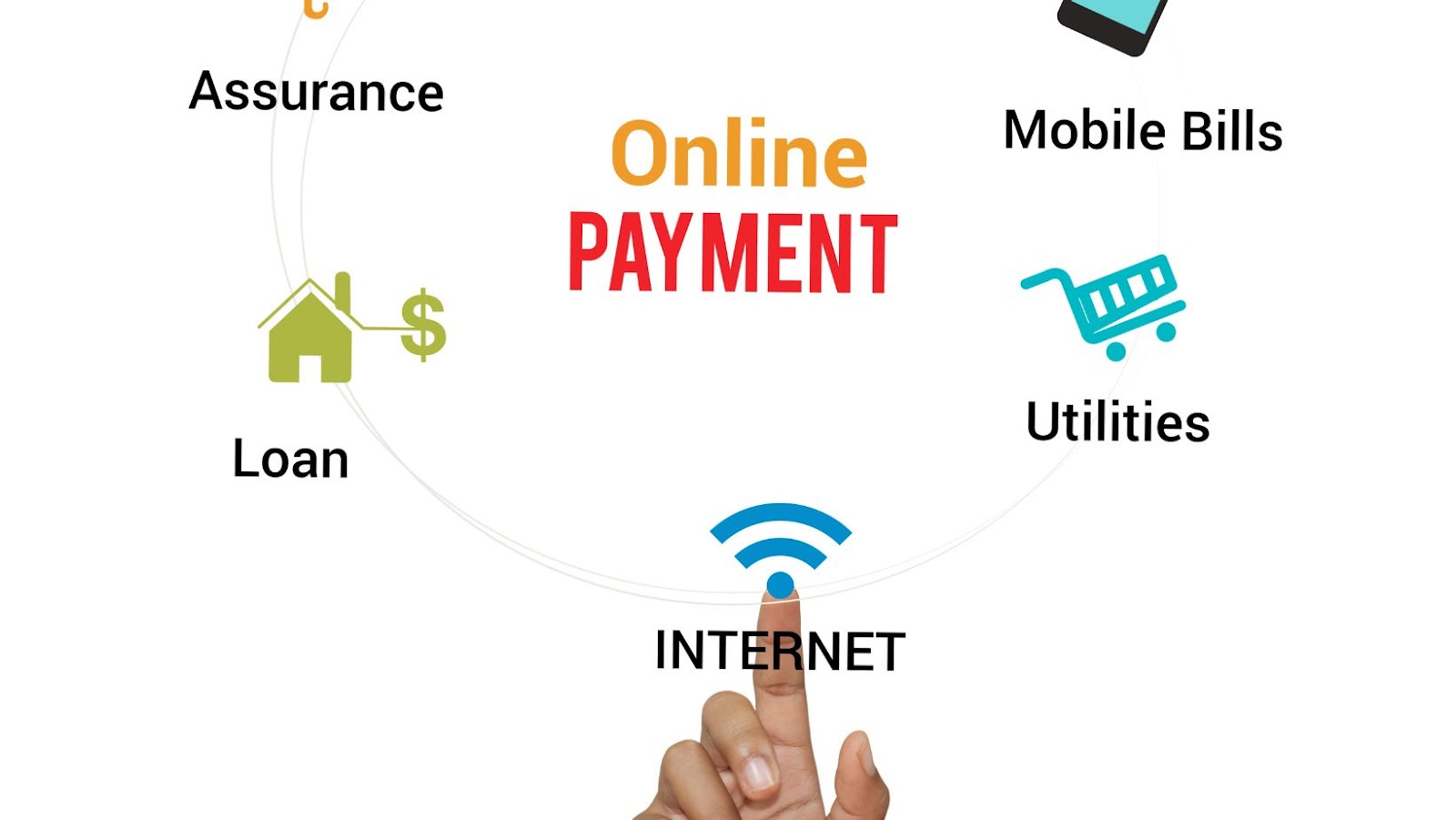Token.io, a technology start-up providing open banking-based account-to-account payments, recently announced that it has raised $40 million in Series B funding. This investment will enable the company to expand its operations across Europe. This new investment brings the total capital raised by the company to $62 million and is a testament to its efforts in developing innovative solutions for open banking-based payments.
This article will explore why Token.io is expanding open banking-based account-to-account payments in Europe and the benefits.
Token.io is a secure cloud-based infrastructure that enables account-to-account payments using open banking.
What is Token.io ?
Token.io is a secure cloud-based infrastructure that enables account-to-account payments using open banking. Token.io is powered by an API platform and set of protocols that unifies payment schemes, jurisdictions, networks and institutions on one platform, allowing businesses to securely connect to internal and external systems from within minutes. Its purpose is to create an efficient, convenient, seamless customer experience for making payments.
To make initiating payments between accounts more secure and transparent for users, Token.io offers full authentication of user credentials while taking into account their respective institutions’ privacy policies regarding personal information sharing. Customers are also given a full picture of the payment journey through detailed tracking features broken down across various checkpoints within the payment process.
Through its flexible multi-scheme support and real-time account mapping capability across numerous banking networks, Token.io is well positioned to provide a range of services for open banking in Europe as well as an extensive network for international payments worldwide in locations like:
- North America
- Asia Pacific
- Australasia
What is Open Banking
Open Banking is an initiative that enables financial organisations to connect and share information within an open ecosystem. This initiative, developed by the European Union (EU), enables banks, payment service providers (PSPs) and third-party FinTech players to access account information from customers within the EU using secure and standard application programming interface (API) integration. As a result, open Banking provides customers with a seamless payment experience and more choice in the products and services they use.
Open Banking is designed to increase competition in Europe’s payments industry. This initiative requires banks to open up data such as transactions, account balances and personal information in a secure way that meets regulations standards. By doing so, banks provide Third-Party Providers (TPPs) with better insight into their customer’s data and give customers access to new products, services, offers and experiences.

Through Open Banking, banking institutions must adhere to strict rules on how they provide key transaction data between countries; these are referred to as Strong Customer Authentication (SCA) rules set out by the Second Payment Services Directive or PSD2 under EU law. In addition, it must comply with strict regulations on bank secrecy such as GDPR for Data privacy laws set out by the European Counsel in May 2018. With Open Banking everyone benefits – customers can have greater control over their banking experience while banks can create new business opportunities from API technology.
Its purpose is to create an efficient, convenient, seamless customer experience for making payments.
Token.io Raises $40M to Expand Open Banking-Based Account-To-Account Payments in Europe
Token.io recently raised $40M in its Series A funding round. The company raised this capital to expand its open banking-based account-to-account payments service in Europe. This move is expected to benefit both customers and banks alike as it will offer customers a secure and efficient way to transfer money. In contrast, banks can benefit from the increased volume of payments.
Let’s explore how Token.io is planning to expand its open banking-based account-to-account payments service in Europe:
Token.io Raises $40M
Token.io, a global payments company providing access to bank account payments and data, has announced an $40M funding round to support its Europe-wide open banking expansion. Existing investor Lakestar led the round with participation from Orange Digital Ventures and Citi Ventures.
Founded in 2014, Token.io’s platform provides global Account-to-Account (A2A) payments powered by its Open Banking infrastructure enabling frictionless payments to debit card providers, banks and settlement networks across Europe. This is achieved through standardised open APIs that are easily accessible for developers building secure products and services which seamlessly connect into participating banks across the continent.
The latest funding round will enable Token.io to expand its technical capabilities and coverage across Europe, helping to make the Open Banking payment infrastructure more ubiquitous and widely used by businesses seeking faster funds transfer speeds than traditional methods can offer today. In addition, with this latest funding, Token.io plans to continue growing its team of financial services industry veterans who are developing innovative solutions that provide greater choice in European payment solutions while upholding high standards of compliance and security.
Expansion of Open Banking-Based Account-To-Account Payments
Open banking-based account-to-account payments refer to monetary transactions between accounts held at different financial institutions using funds from the customer’s bank account. Token.io has been actively advancing its mission to radically simplify access to secure financial services for customers in Europe, through expansion of its Open Banking-based Account-to-Account payments infrastructure.
Token.io seeks to modernise and optimise the payments value chain across Europe by managing customer authentication and securely delivering transaction data directly from one bank account to another, allowing customers to send money from their bank accounts with more efficiency, speed and cost savings than traditional processes. Furthermore, by leveraging open banking APIs and its enterprise technology Stack (eTS), Token ensures that customers can quickly, easily and safely make A2A payments mainly in Euro currency across multiple European nations.
Token.io’s eTS ensures safe and secure information transfer between banks and other payment providers participating in its Open Banking Network of regulated European banks and Payment Service Providers (PSPs). The eTS provides distributed ledger technology (DLT) at each point along the A2A payment process:
- Verification of customer data
- Conversion of currency amounts at both endpoints of the transaction (if necessary)
- Handling return messages or refunds if desired or needed by any user
- Providing protocol conversion so that all parties involved in a transaction may complete their side remotely without having to wait for manual intervention or complex systems upgrade setups: meaning faster processing times with less overhead costs for both companies making payments as users performing transactions.

Token’s expansive network allows them to expand their reach throughout Europe simultaneously with major players such as Clear Club who are embracing Token technology for present realities around taking advantage of newer opportunities that are only made possible through open banking standards into new markets & regions for open banking based account-to-account payments.
Open Banking is designed to increase competition in Europe’s payments industry. This initiative requires banks to open up data such as transactions, account balances and personal information in a secure way that meets regulations standards.
Benefits of Open Banking
Open Banking is a major revolution in the financial sector, creating new opportunities for companies to provide innovative financial services worldwide. As Token.io recently raised $40 million to expand their open banking-based account-to-account payments in Europe, it is clear that Open Banking is here to stay.
This section will explore some of the major benefits of Open Banking and how they can be used to improve the user experience when it comes to financial services:
Increased Security
Open banking utilises high levels of encryption and strong data security measures to protect users and banks’ infrastructure. All account data shared between businesses and users using open banking is protected using the latest secure encryption technology. This means user information is protected even when it is transferred across different networks – thus giving users peace of mind that their personal financial information is always safe.
In addition, transactions are authenticated with two-factor authentication at the bank which helps prevent potential fraudulent transactions from occurring. Furthermore, open banking provides access controls for returning users to protect their accounts from unauthorised changes or withdrawals. By using sophisticated security protocols, open banking enables users to confidently manage their money online, ensuring that all transactions are secure and private from external threats.
Lower Fees
Open banking lowers fees for users by enabling them to transact directly from account to account with no intermediaries. Instead of going through a third-party processor, open banking utilises existing infrastructure and APIs to create a more seamless and efficient payment experience. This helps lower users’ costs since they don’t have to pay additional fees for a third-party processor or network.
Additionally, open banking reduces the need for manual processing and administrative overhead costs which the merchant or other involved parties would otherwise incur. Furthermore, since the open banking model is based on sharing data among service providers, there is less need to manually reconcile data and less risk of errors or disputes caused by human error.
By reducing fees, optimising payment processes, and eliminating manual reconciliation tasks, open banking provides users with an efficient and low-cost way to send money quickly and securely.
Faster Payments
Open banking has enabled faster payments, resulting in the accelerated movement of money, improved customer satisfaction, and cost savings for banks and payment providers. In Europe, Token.io is building on this vision by creating a platform for banks and other participants that offers a secure account-to-account payments experience with low costs and exceptional speed.
The emergence of open banking has created new opportunities to accelerate the movement of money while reducing costs, recovering time efficiency and user experience improvement. For example, with an open banking initiative like Token.io, customers can make faster payments than ever by linking bank accounts through APIs instead of their previous steps. This helps merchants drive down friction by eliminating historically manual processes; allowing customers to connect once to authorise the receipt data they need rather than manually sharing it each time they pay or send money.

This results in a near instantaneous process that removes lengthy waiting times associated with traditional payment processes – leading to convenience & speed improvements for consumers across Europe. Additionally, by driving efficiencies within customer onboarding, merchants may be able to capitalise on improved costs & timelines associated with account set-up versus through existing standards.
Challenges for Token.io
With the news of Token.io raising $40 million to expand open banking-based account-to-account payments in Europe, some challenges exist. Open Banking offers new technologies that can revolutionise payments, but with new technologies comes new risks.
How will Token.io safeguard against these risks and ensure a secure and seamless customer experience? What are the other challenges that Token.io would face to stay ahead in the payments space?
Regulatory Obstacles
With the emergence of blockchain technology, many companies quickly realised that there were opportunities for creating digital tokens for various uses. Token.io is one such company that is building a gateway for tokenizing existing on and off-chain assets and transactions. However, while this technology has the potential to revolutionise how we interact with different platforms, it also has its obstacles, mostly stemming from the lack of clear regulation in many countries.
These complications can be significant when launching and expanding an ambitious project like Token.io – without a clear regulatory framework in place, it can be difficult to operate within that system while being compliant at the same time. Furthermore, many governments have yet to determine where they stand on cryptocurrency- or blockchain-based products and services, which makes navigation through legal frameworks even more challenging and tricky.
In addition, there are privacy considerations when storing personal data or financial information tied to any given blockchain transaction. Establishing transparency while keeping personal information secure requires careful consideration to provide users with the highest levels of security possible. These issues become compounded as the network grows, making them a challenge for Token when considering long-term operation plans or scalability initiatives, for instance.
Lastly, additional challenges are associated with trading tokens or various digital assets created without cross-border communication between different jurisdictions worldwide – such issues as KYC (know your customer) requirements or money laundering prevention measures need consideration regardless of borders between them. This further increases complexities arising when aiming for global expansion plans; requiring agreement with all relevant parties must be made before launching any product or service into different markets.
Open banking lowers fees for users by enabling them to transact directly from account to account with no intermediaries
Lack of Awareness
With Token.io being a relatively new technology, one of the biggest challenges is a lack of awareness of its capabilities and what it can offer its users. In addition, since Token is powered by bank-tech collaboration, there is often confusion and misunderstanding associated with this concept which could be daunting for potential investors or customers.
To overcome this challenge, Token.io must invest heavily in educating and marketing its product to potential consumers and partners, showing them the advantages they can reap from utilising this technology. This includes enhanced security measures, secure payments using upcoming technologies such as blockchain, real-time transactions and precise tracking capabilities. By doing so, Token can develop greater market penetration and onboard more users aware of the opportunities it presents to them within the banking sector.
Competition
Competition is one of the main challenges facing Token.io. The company and other open banking-based account-to-account payment providers are vying for a market share in Europe as more banks move towards open banking regulations and technology.
This presents obstacles to Token.io, including battling against established financial institutions that hold powerful positions within the industry. Additionally, customer inertia and established customer behaviours may limit the growth potential of the company’s platform if customers aren’t willing to switch away from their current institutions or move their existing habits onto the platform.
Increased regulatory expectations are also forcing European banks to move to a more secure way of transferring and storing money to prevent data theft or money laundering, which adds another layer of difficulty when attempting to enter an already competitive market. This means Token will have to work alongside regulators across different countries to ensure compliance with all rules and regulations; therefore finding ways to navigate these markets can be tricky for this relatively new fintech player .
tags = alternative payment technologies, create their own digital currencies and for other purposes, londonbased token.io series cota capital tempocaplundentechcrunch, token.io 40m cota tempocaplundentechcrunch, series cota capital tempocaplundentechcrunch, londonbased series capital tempocaplundentechcrunch, token.io 40m capital tempocaplundentechcrunch, londonbased 40m cota capital tempocaplundentechcrunch, londonbased series cota tempocaplundentechcrunch, token.io 40m series tempocaplundentechcrunch, ukbased token.io 40m tempocaplundentechcrunch, company in the account-to-account payment space, cota capital leading investment


More Stories
Why Cloud Connectivity Is Very Important For Kong
How Kong Plans To Use Their Series D Funding
What Challenges Does Niantic Face With Lightship AR?